Kenya
A former Somali refugee, determined to provide books and education to his fellow countrymen facing difficult conditions in the expansive camps of Kenya, has been honoured as the recipient of the prestigious Nansen Award from the UN refugee agency.
Abdullahi Mire, aged 36, earned recognition for his advocacy of the right to education, demonstrated through his initiative to distribute 100,000 books to children residing in the overcrowded Dadaab refugee camps in Kenya.
"My role is to connect the youth here in this camp to the world for better opportunities. Books open doors that you cannot imagine," explained M. Mire.
Born in Somalia, Mire and his family sought refuge in Kenya during a period of unrest when he was still a young child. Spending 23 years in Dadaab, a complex of three camps initially established in the 1990s for about 90,000 refugees, the current population has surged to approximately 370,000, as per UN statistics.
"To me, my happiest moment, my highest moment is when I put a book in the hand of a needy child, a displaced child," added the laureate.
Despite facing what the UNHCR termed as "monumental odds," Mire not only completed his primary and secondary education within the camp but also achieved a degree in journalism and public relations.
"It inspires me. It gives me the energy to move on because the impacts are clear. Books unify. Education is the greatest equaliser," said Abdullahi Mire.
Upon returning to Kenya, where he worked as a journalist, Mire encountered Hodan Bashir Ali while reporting in Dadaab. She approached him seeking assistance in finding a biology book, expressing her ambition to become a doctor, despite the challenging conditions where 15 students had to share a single textbook at her school.
Motivated by this encounter, Mire established the Refugee Youth Education Hub, dedicated to raising awareness about the educational needs of refugees and soliciting book donations. The organization, led by refugees, has successfully introduced 100,000 books into the camps and established three libraries to date.
The programme has already boosted enrolment in higher education among the refugees.
"I know dozens of girls who wanted to be teachers who are teachers now," Mire said.
"Books are about giving the opportunity to dream and to think about a career, about how to be a better citizen of this world."
The Nansen prize, awarded annually, is named for Norwegian polar explorer Fridtjof Nansen, who served as the first high commissioner for refugees for the League of Nations -- the precursor of the United Nations.
The award winner receives a commemorative medal and a monetary prize of $100,000, to be reinvested in humanitarian initiatives.
Last year's award went to former German chancellor Angela Merkel, who was hailed for the dedication she showed while in office to protect people displaced by conflict.
Mire, who will receive his award at a ceremony in Geneva on December 13, said the prize was "a huge honour for all refugee-led organizations".
"I am not a philanthropist, I am not a rich person... but I believe anyone can make a difference," he said.
"You don't need to be a politician or a celebrity or a tycoon to have an impact. Everyone can have a role to play to make people's lives better."




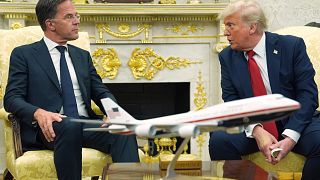
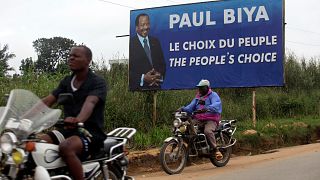
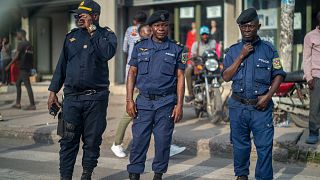

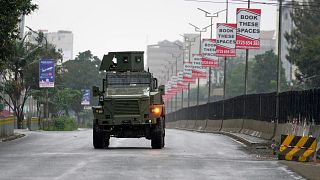
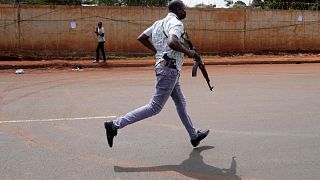



01:07
UN-Russia agricultural export memorandum will not be extended
01:13
Forty years and counting: CAR once again postpones local elections
Go to video
ICC warns of a dire humanitarian crisis in Sudan as the war rages on
02:06
UN report reveals 4.6 million people struggling with food insecurity
01:10
At least three killed after AU military helicopter crashes in Somalia's Mogadishu airport
01:22
World will have to learn to live with heatwaves, UN says